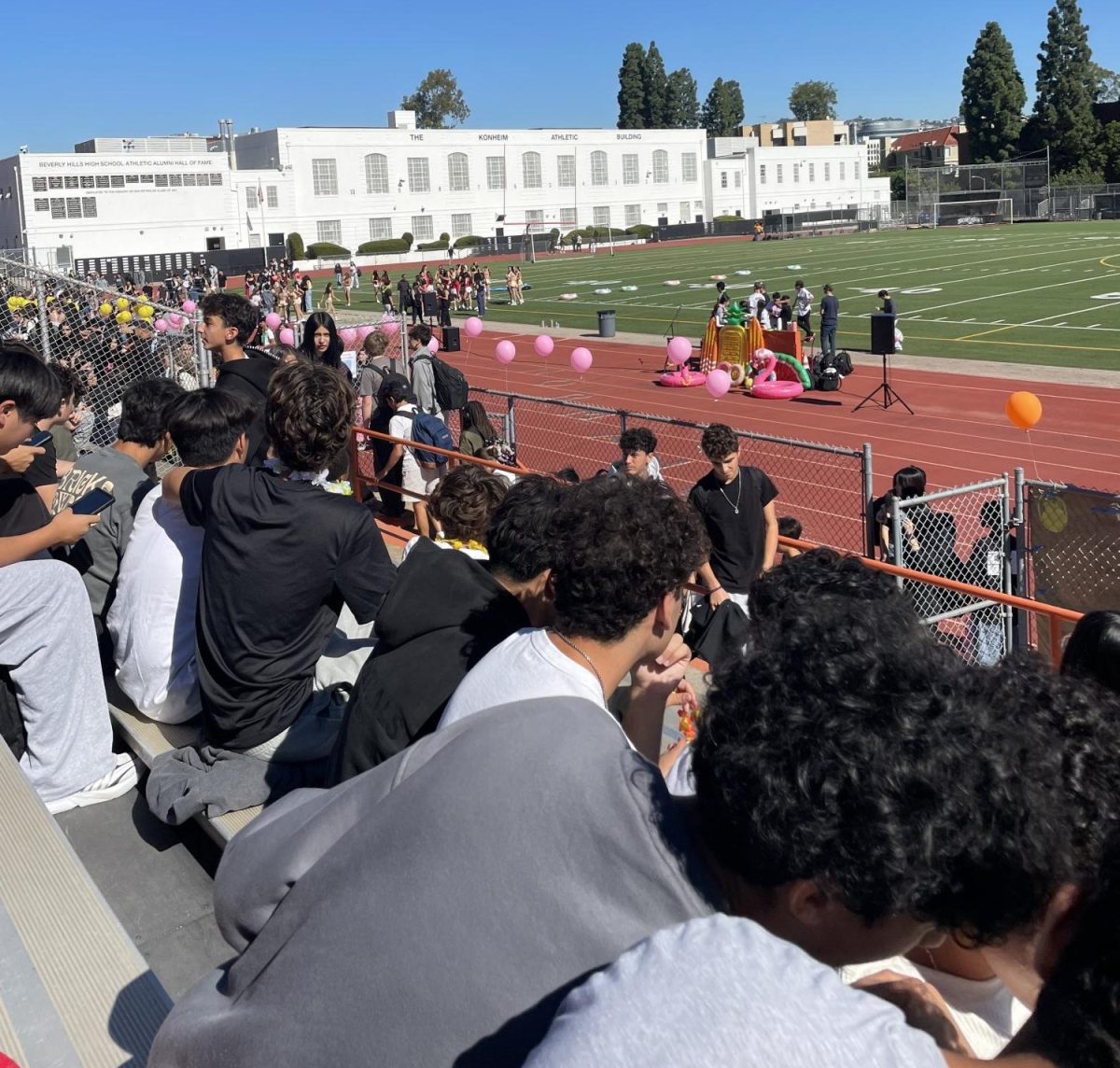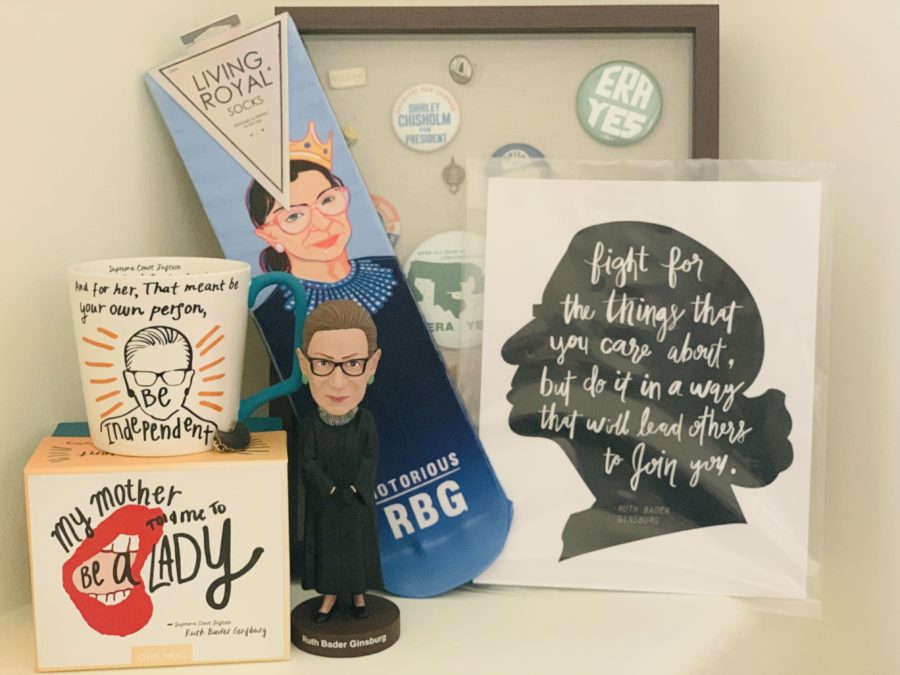Leia Gluckman contributing writer
Supreme Court Justice Ruth Bader Ginsburg died due to complications of metastatic pancreatic cancer on Friday, Sept. 18.
Appointed by President Bill Clinton in 1993 as the second female, and first Jewish female, Supreme Court Justice, Justice Ginsburg has since served as a beacon of feminist hope and an intellectual powerhouse on the bench.
Justice Ginsburg earned the nickname the “Notorious RBG” after famously dissenting in the case Shelby County v. Holder, which held that a part of the Voting Rights Act of 1965 was no longer considered constitutional. Her dissent was considered a landmark that catapulted her popularity among Americans and led to Ginsburg pins, collars, and bobbleheads across the country.
Prior to her work on the bench, Ginsburg taught as a law professor at Columbia Law School as the school’s first tenured female professor. She then litigated on behalf of the American Civil Liberties Union (ACLU) and helped write the ACLU brief in Reed v. State of California, which she argued before the Supreme Court in 1971. Ginsburg also headed the Women’s Rights Project at the ACLU, which advocates against systematic discrimination of women across the country.
Before serving on the Supreme Court, Ginsburg was appointed to the United States Court of Appeals for the District of Columbia, the nation’s second-highest court, by President Jimmy Carter in 1980.
Ginsburg consistently fought for gender equality under the law and has made history in numerous walks of life.
There are issues that many feminists and women hoped would be addressed while Justice Ginsburg would be on the Court to express our voices. Among these are the Equal Rights Amendment (ERA), menstrual equity and reproductive justice. Her passing this past Friday could be seen as a day that hope for progress on these issues was lost; but this is by no means the time to lose hope.
Now is the time to honor Ginsburg by continuing to advocate for the causes she cared about and bringing about the changes she won’t get to see made.
It is understandable that people may need time to mourn this great loss, but it is time to unite and to do everything in our power to ratify the Equal Rights Amendment, to advocate for the rights of immigrants, to battle for justice and equality under the law, and to ensure that the next Supreme Court justice is someone who upholds Ginsburg’s values by voting and encouraging others to do the same.
Ginsburg was a legend; she will be remembered as a passionate advocate for all she believed in. Her iconic dissent collar will continue to be worn by people ages 1 to 100.
In her final days, per multiple sources, Ginsburg told her granddaughter Clara Spera “[her] most fervent wish is that [she] will not be replaced until a new president is installed.”
“These types of occurrences are the impetus for greatness to come to the fore,” AcaDeca and DECA coach John Johnson told students after hearing the news of Ginsburg’s death.
It is in these times that the duty of the Senate and of those who respected Ginsburg is to do everything in their power to uphold her final wish.
Ginsburg leaves the United States as a country with a more vibrant progressive movement than the one of which she was born into.
“Fight for the things that you care about, but do it in a way that will lead others to join you,” Ginsburg once said.
It is in precisely this way that Ginsburg inspired so many to join her and we should heed this call to carry on.
Categories:
The Notorious RBG: The trailblazer of the century
September 21, 2020
0
Donate to Highlights
$125
$1000
Contributed
Our Goal
Your donation will support the student journalists of Beverly Hills High School. Your contribution will allow us to purchase equipment and cover our annual website hosting costs.
More to Discover































